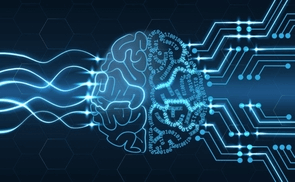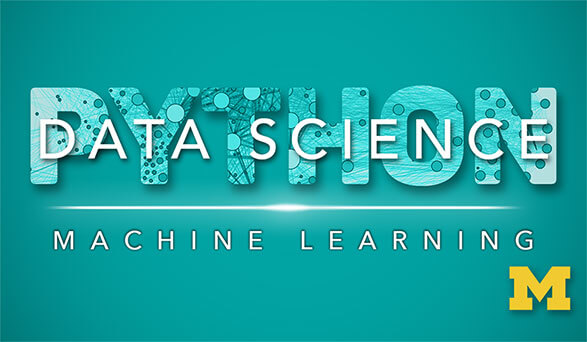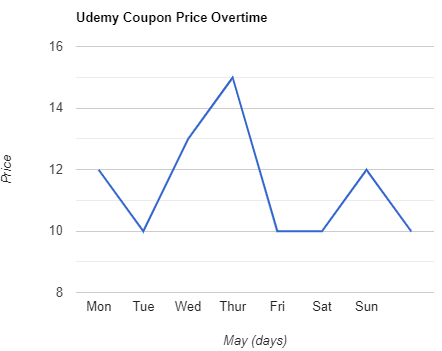Machine Learning with Python: from Linear Models to Deep Learning
An in-depth introduction to the field of machine learning, from linear models to deep learning and reinforcement learning, through hands-on Python projects. -- Course 4 of 4 in the MITx MicroMasters program in Statistics and Data Science.
Created by: Karene Chu
 Quality Score
Quality Score
Content Quality
/
Video Quality
/
Qualified Instructor
/
Course Pace
/
Course Depth & Coverage
/
Overall Score : 0 / 100
 Live Chat with CourseDuck's Co-Founder for Help
Live Chat with CourseDuck's Co-Founder for Help
Need help deciding on a machine learning course? Or looking for more detail on Karene Chu's Machine Learning with Python: from Linear Models to Deep Learning? Feel free to chat below.
Join CourseDuck's Online Learning Discord Community
 Course Description
Course Description
Machine learning methods are commonly used across engineering and sciences, from computer systems to physics. Moreover, commercial sites such as search engines, recommender systems (e.g., Netflix, Amazon), advertisers, and financial institutions employ machine learning algorithms for content recommendation, predicting customer behavior, compliance, or risk.
As a discipline, machine learning tries to design and understand computer programs that learn from experience for the purpose of prediction or control.
In this course, students will learn about principles and algorithms for turning training data into effective automated predictions. We will cover:
Representation, over-fitting, regularization, generalization, VC dimension;
Clustering, classification, recommender problems, probabilistic modeling, reinforcement learning;
On-line algorithms, support vector machines, and neural networks/deep learning.
Students will implement and experiment with the algorithms in several Python projects designed for different practical applications.
This course is part of theMITx MicroMasters Program in Statistics and Data Science. Master the skills needed to be an informed and effective practitioner of data science. You will complete this course and three others from MITx, at a similar pace and level of rigor as an on-campus course at MIT, and then take a virtually-proctored exam to earn your MicroMasters, an academic credential that will demonstrate your proficiency in data science or accelerate your path towards an MIT PhD or a Master's at other universities. To learn more about this program, please visit https://micromasters.mit.edu/ds/.
If you have specific questions about this course, please contact us atsds-mm@mit.edu.
Lectures :
Introduction
Linear classifiers, separability, perceptron algorithm
Maximum margin hyperplane, loss, regularization
Stochastic gradient descent, over-fitting, generalization
Linear regression
Recommender problems, collaborative filtering
Non-linear classification, kernels
Learning features, Neural networks
Deep learning, back propagation
Recurrent neural networks
Recurrent neural networks
Generalization, complexity, VC-dimension
Unsupervised learning: clustering
Generative models, mixtures
Mixtures and the EM algorithm
Learning to control: Reinforcement learning
Reinforcement learning continued
Applications: Natural Language Processing
Projects :
Automatic Review Analyzer
Digit Recognition with Neural Networks
Reinforcement Learning
As a discipline, machine learning tries to design and understand computer programs that learn from experience for the purpose of prediction or control.
In this course, students will learn about principles and algorithms for turning training data into effective automated predictions. We will cover:
Representation, over-fitting, regularization, generalization, VC dimension;
Clustering, classification, recommender problems, probabilistic modeling, reinforcement learning;
On-line algorithms, support vector machines, and neural networks/deep learning.
Students will implement and experiment with the algorithms in several Python projects designed for different practical applications.
This course is part of theMITx MicroMasters Program in Statistics and Data Science. Master the skills needed to be an informed and effective practitioner of data science. You will complete this course and three others from MITx, at a similar pace and level of rigor as an on-campus course at MIT, and then take a virtually-proctored exam to earn your MicroMasters, an academic credential that will demonstrate your proficiency in data science or accelerate your path towards an MIT PhD or a Master's at other universities. To learn more about this program, please visit https://micromasters.mit.edu/ds/.
If you have specific questions about this course, please contact us atsds-mm@mit.edu.
Lectures :
Introduction
Linear classifiers, separability, perceptron algorithm
Maximum margin hyperplane, loss, regularization
Stochastic gradient descent, over-fitting, generalization
Linear regression
Recommender problems, collaborative filtering
Non-linear classification, kernels
Learning features, Neural networks
Deep learning, back propagation
Recurrent neural networks
Recurrent neural networks
Generalization, complexity, VC-dimension
Unsupervised learning: clustering
Generative models, mixtures
Mixtures and the EM algorithm
Learning to control: Reinforcement learning
Reinforcement learning continued
Applications: Natural Language Processing
Projects :
Automatic Review Analyzer
Digit Recognition with Neural Networks
Reinforcement Learning
 Instructor Details
Instructor Details

- 0.0 Rating
 0 Reviews
0 Reviews
Karene Chu
Karene Chu received her Ph.D. in mathematics from the University of Toronto in 2012. Since then she has been a postdoctoral fellow first at the University of Toronto/Fields Institute, and then at MIT, with research focus on knot theory. She has taught single and multi-variable calculus, and linear algebra at the University of Toronto where she received a teaching award.









